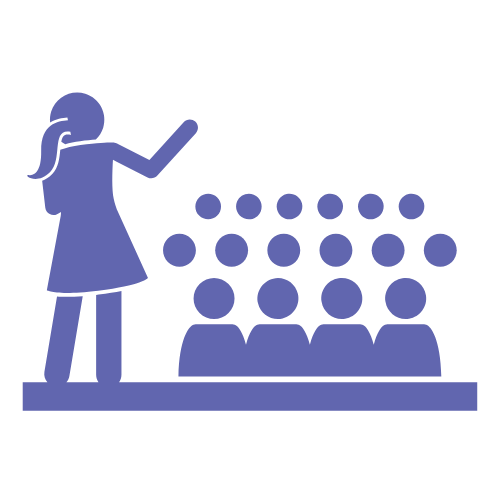The WHO, WHAT, and WHY of I-O Psychology
- Sarah Jackson
- Apr 15, 2022
- 3 min read
Updated: Sep 29, 2023
If you're an avid follower of Mattingly Solutions content then you know that we commonly refers to ourselves and members of our team as "I-O psychologists" and "scientist-practitioners". Today we want to bring it back-to-the-basics and really define for our audience what those terms mean and how they help shape and define the work that we do.

THE WHO
I-O psychology is the acronym for Industrial-Organizational psychology, it's quite the mouthful! Therefore, people (like us!) who study and have received formal educational training in this subfield of psychology are then referred to as (you guessed it), I-O Psychologists. I-O psychology is highly specialized and requires a Master's or Doctorate (P.h.D) level education - you can see for yourself how much technical education our team has in this field!
So, we are scientist-practitioners. Simply put, this means that we are both trained professionally as scientists and researchers, but also on how to practice that vast knowledge in an applied, or real-world, setting. Our scientist background allow us to use empirical research to influence our applied practice; while vice-versa, allowing us to use our experiences during applied practice to shape our future research questions. This background is one of the reasons why all of our solutions for organizations and clients are fully-backed by empirical science and research, and we wouldn't have it any other way!
THE WHAT
As previously mentioned, I-O psychology is one of the many subfields of psychology, and not a well-known one at that. When most people hear the word psychology they often think of clinical psychologists, who mainly focus on mental, emotional, and behavioral disorders, but that is quite different from the focus of I-O psychology. As defined by the APA (American Psychological Association), I-O psychology is characterized by the scientific study of human behavior in organizations and the work place, with a specialized focus on deriving principles of individual, group and organizational behavior and applying this knowledge to the solution of problems at work.
I-O Psychology provides those trained as scientist-practitioners with expertise in the design, execution, and interpretation of research and the ability to apply their findings to help address human and organizational problems in the context of organized work, some common examples of what I-O psychologists can do include;
Identify training and development needs;
Design and optimize job and work and quality of work life;
Formulate and implement training programs and evaluate their effectiveness;
Coach employees;
Develop criteria to evaluate performance of individuals and organizations; and
Assess consumer preferences, customer satisfaction and market strategies.
AND SO MUCH MORE! In fact, I-O psychology training provides one of the most diversified set of skills and knowledge based of all fields of psychology. This almost always results in many different options and career paths once fully-trained. These career paths can range from anything like positions in HR (Human Resources), consulting (both internal and external), management (especially upper-management), analyst (workforce, behavioral, etc.), organizational recruitment/staffing, project manager, and many, many, more. The opportunities are truly endless!
THE WHY
So you probably have some questions at this point, like why would we want to attend an additional two or five-years of graduate school just to do this work? or why do we care about organizations this deeply? or better yet, why do we choose to focus on diversity, equity, and inclusion (DEI) within organizations? Well let's dive in.
Although there is a lengthy, highly-specialized training involved in being able to do this work, for those who are internally motivated to do it, it is well worth it. The way we see it, the place we all (most likely) will spend a majority of your life is in fact, at work, so we want to help both organizations and employees to make that experience as beneficial as possible, for everyone involved. Doing this work is not easy, but improving the work experience, maintaining employee satisfaction, and evolving with new research/technology is vital to organizational success and everything in between. Organizations would not exist if not for the employees who move them forward.
As to why we at Mattingly choose to focus on DEI; we see topics of DEI being some of the most pertinent issues facing U.S. organizations today and we want to be a part of the solution. We have a deep desire to use our educational backgrounds and platform to give you and your organization a data-driven, prioritized, actionable, and sustainable long-term DEI culture change movement. We want to create a future workforce that is diverse, equitable, and inclusive of all workers.
Sarah Jackson, M.S. is an IO & DEI consulting assistant at Mattingly Solutions and also a PhD candidate at Florida International University. Learn more about and connect with her here.





Comments